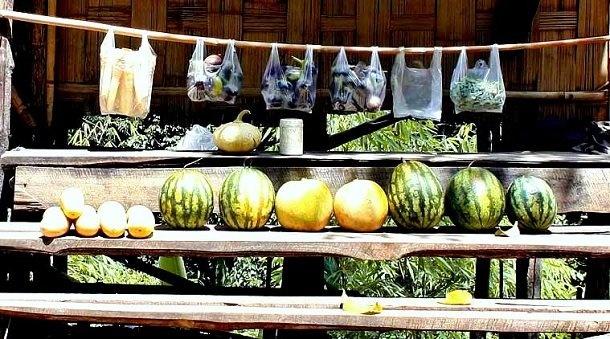While the law enforcement authorities continuously try to thwart attempts of theft and loot, a story about trust in India’s northeast has grabbed my attention when I saw a tweet of All India Radio News today.
Hidden from the world’s eye in between Bhutan, Bangladesh, China, and Myanmar, the North Eastern region of India seems detached from the rest of the nation — even on the map. Inside the deep jungles of Mizoram, just two to three hours from the state capital Aizawl, the local Mizo community practices a unique tradition: nghah loh dawr or shops without shopkeepers.

These unmanned shops are humble makeshift structures built from bamboo. They dot the hairpin roads guarded by sheer peaks in the interiors of Mizoram, and while plain and seemingly unremarkable, they are beautiful illustrations of the unique and rich culture of the Mizo people.
Along the highway of Seling, there are many shops without shopkeepers not just offering items to sell but also a very valuable lesson to anyone willing to learn. Known as “Nghah Loh Dawr culture,” the tradition is all about opening shops but without the presence of the shopkeepers. They leave the rest to customers’ faith and honesty.
“These shops work on principle of trust” as people can take whatever they want and keep money in the box. Mizoram residents have surely found a way to adapt to the changing times and its inspiring to see how they embrace honesty, hospitality, and trust, to carry on with daily life.
The Mizo community is a tight, close-knit one. Social biases and discrimination make little or no appearance in the day-to-day life in this society, unlike in the rest of India where wealth, class, caste, or gender decide a person’s worth or their status.
Every morning, shop owners who are also farmers bring their harvest including leafy greens, carrots, cabbage, onions, and freshly picked fruits such as watermelons, pineapples, lime, lemons, and papayas to display them on rickety wooden racks and makeshift bamboo counters. Farmers use small name boards to display the price of each time. Sometimes they write the price in charcoal on each item. A wooden box or a plastic jar is placed on the table before they head to their farmlands for the daily cultivation work.
Customers grab whatever they require and put the money into the ‘pawisa bawm’. If they require changes, the customers simply pick up the change from the same ‘pawisa bawm’. At the end of the day, owners come back and collect their earnings and the remaining items.
Their hospitality and sincere approach towards life even has a Mizo term for it– tangihanga which literally means “always being kind, hospitable, unselfish and helpful to others.”
While this tradition shares some similarities with the honor system practiced in Swizerland, sincerity and integrity are much more internalized in the Mizo way of life. It also gives farmers the chance to sell their goods directly without having to go through intermediaries and lose money in the process.
The people of Mizoram are true role-models for us to be inspired from. We should all aspire to reach their collective sense of honesty and integrity.
Feature Image Credit: Harshit Chauhan


Indeed honesty is the best policy. Wonderful example!
LikeLiked by 1 person
Wow! I wish we have such trust in our society at large. Thanks for sharing the info.
LikeLiked by 1 person
Thanks, Nilanjana.
LikeLike
How remarkable! Never heard of this place/culture. Thanks for your sharing me this. 🍸
LikeLiked by 1 person
Thanks for dropping by. 🙂
LikeLike
Thumbs up to the Mizo people and their culture. It is unthinkable anywhere in rest of the country.
LikeLiked by 1 person
Very true. I have read such practices are also prevailing in some areas in Switzerland. This is amazing.
LikeLike
Lovely post thnx to share this lovely post
LikeLiked by 1 person
Thanks, Nitin.
LikeLike
Unique indeed. It would be an excellent way to reinforce trust and honesty among people even in other areas…but I wonder whether it would work smoothly. I already have lost faith, not totally though, on humanity…
LikeLiked by 1 person
Yes, such indigenous cultures reinforce our hope on humanity, which we have lost, unfortunately, in the process of our modernization and money-centric, money-oriented development.
LikeLiked by 1 person
Indeed…
LikeLiked by 1 person
Pingback: #16 – The city where shops don’t have shopkeepers – Mizoram – Something Good